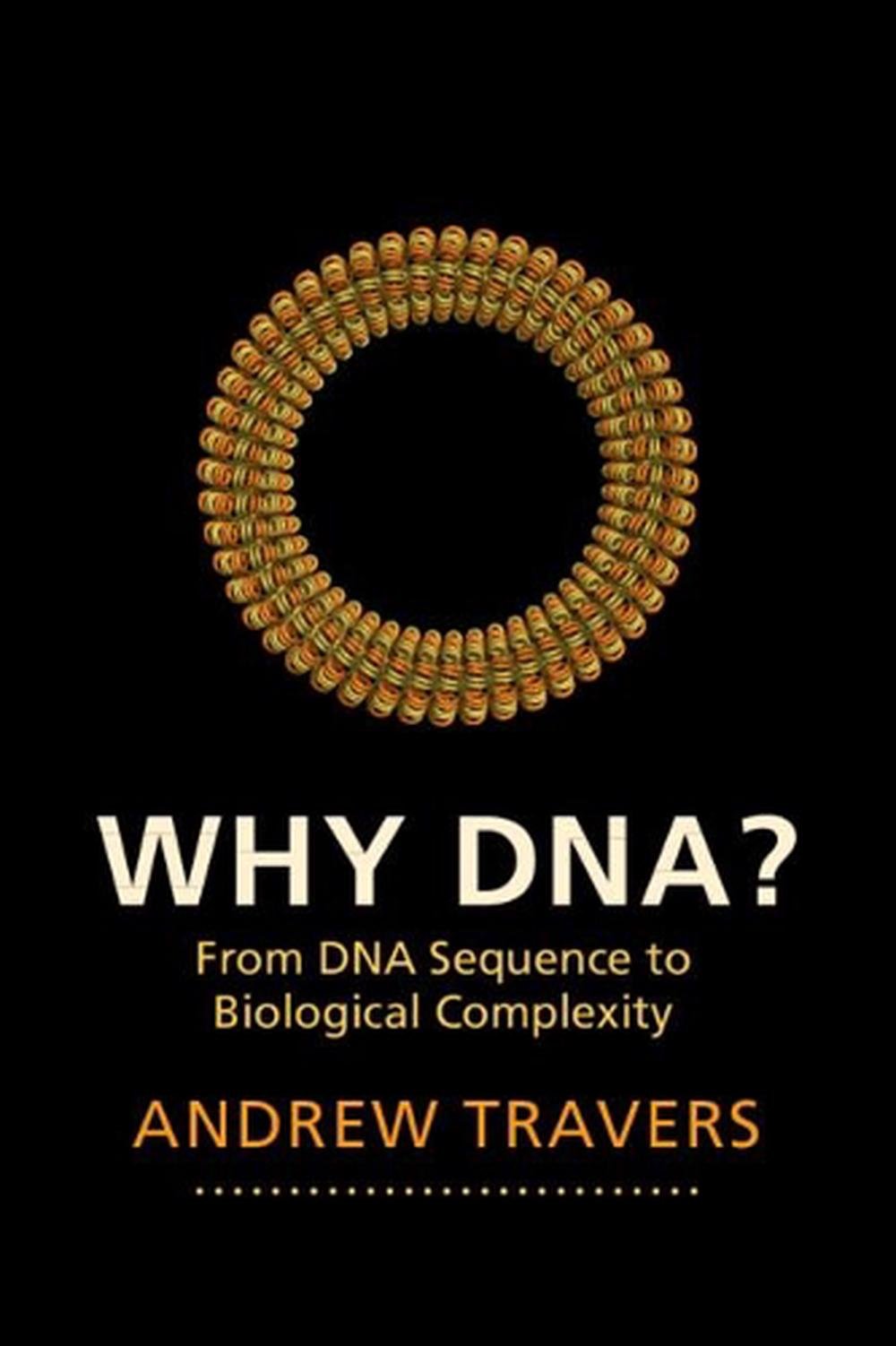
Why DNA?
From DNA Sequence to Biological Complexity
$95.92
- Paperback
222 pages
- Release Date
17 February 2022
Summary
Information is central to the evolution of biological complexity, a physical system relying on a continuous supply of energy. Biology provides superb examples of the consequent Darwinian selection of mechanisms for efficient energy utilisation. Genetic information, underpinned by the Watson-Crick base-pairing rules is largely encoded by DNA, a molecule uniquely adapted to its roles in information storage and utilisation.
This volume addresses two fundamental questions. Firstly, what p…
Book Details
| ISBN-13: | 9781107697522 |
|---|---|
| ISBN-10: | 1107697522 |
| Author: | Andrew Travers |
| Publisher: | Cambridge University Press |
| Imprint: | Cambridge University Press |
| Format: | Paperback |
| Number of Pages: | 222 |
| Release Date: | 17 February 2022 |
| Weight: | 400g |
| Dimensions: | 228mm x 152mm x 11mm |
You Can Find This Book In
What They're Saying
Critics Review
‘The essence of the book is in its title. The DNA structures and topology are described so clearly that the reader perceives these intricacies as pure evolutionary elegance, and understands WHY it is only in its balance of stability and agility that life could have started its journey. This book explains how DNA has become the fascinating prism, made of a fabric of complexity and information, into which the living reflects itself. My opinion is passionate because I have been thinking about the same problems for decades, and here I find many of the answers. Especially: what makes DNA so unique? It is a text that I keep reading over again.’ Ernesto Di Mauro, IBPM, National Research Council, Rome‘In What Is Life? Schrödinger conjectured that, in animate matter, order is derived from order, foreshadowing the discovery of DNA structure. Why DNA? is about this molecule and its dual information content - in linear genetic code and in thermodynamics of three-dimensional DNA structures. It addresses how DNA’s intrinsic order led to complex, highly ordered living organisms, in a world that strives towards disorder. Why would DNA supplant RNA in carrying hereditary information during biological evolution? Why did multicellular organisms emerge, since natural selection favours the fittest, such as simple bacteria? What is complexity, and what has it to do with Bayesian logic? How do complexity, information and energy interrelate? This is a succinct discourse on Schrödinger’s question, expanding from molecular interactions and genome cooperation to ecological systems and societal evolution. A must-read for biology scholars, and anyone interested in life’s origins, biological evolution and the interface of biology and physics.’ Georgi Muskhelishvili, Agricultural University of Georgia, Tbilisi‘This is a welcome, fresh discussion of DNA as a complex biochemical resource beyond genetic functions. … Highly recommended.’ D. L. Beach, Choice
About The Author
Andrew Travers
Andrew Travers is an Emeritus Scientist at the Medical Research Council Laboratory of Molecular Biology (MRC LMB) and a Visiting Scientist in the Department of Biochemistry at the University of Cambridge. His research focuses on the use of the genetics and biochemistry of bacteria and Drosophila to study the mechanisms of chromatin folding and unfolding. He started his academic career at the MRC LMB before spending two years as a post-doc in Jim Watson’s lab at Harvard University, where he co-discovered the first of the RNA polymerase sigma factors.
Returns
This item is eligible for free returns within 30 days of delivery. See our returns policy for further details.




